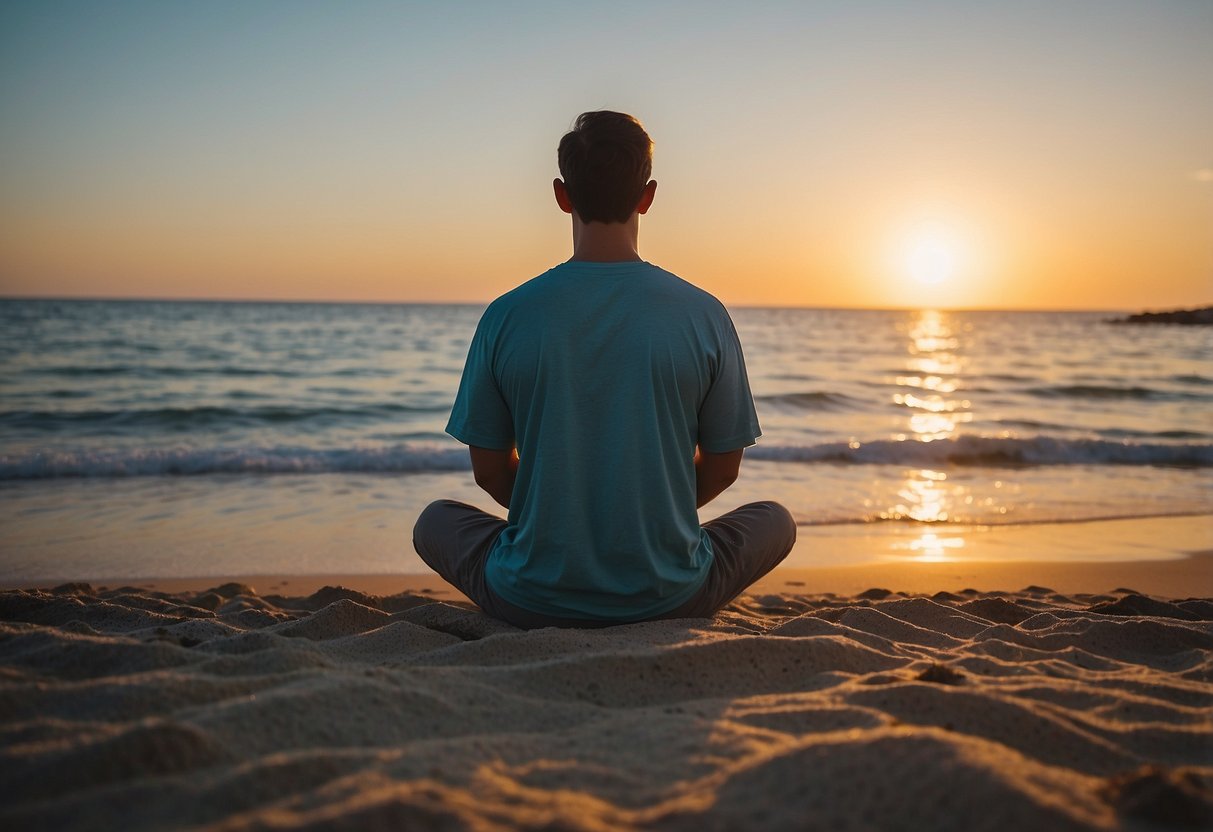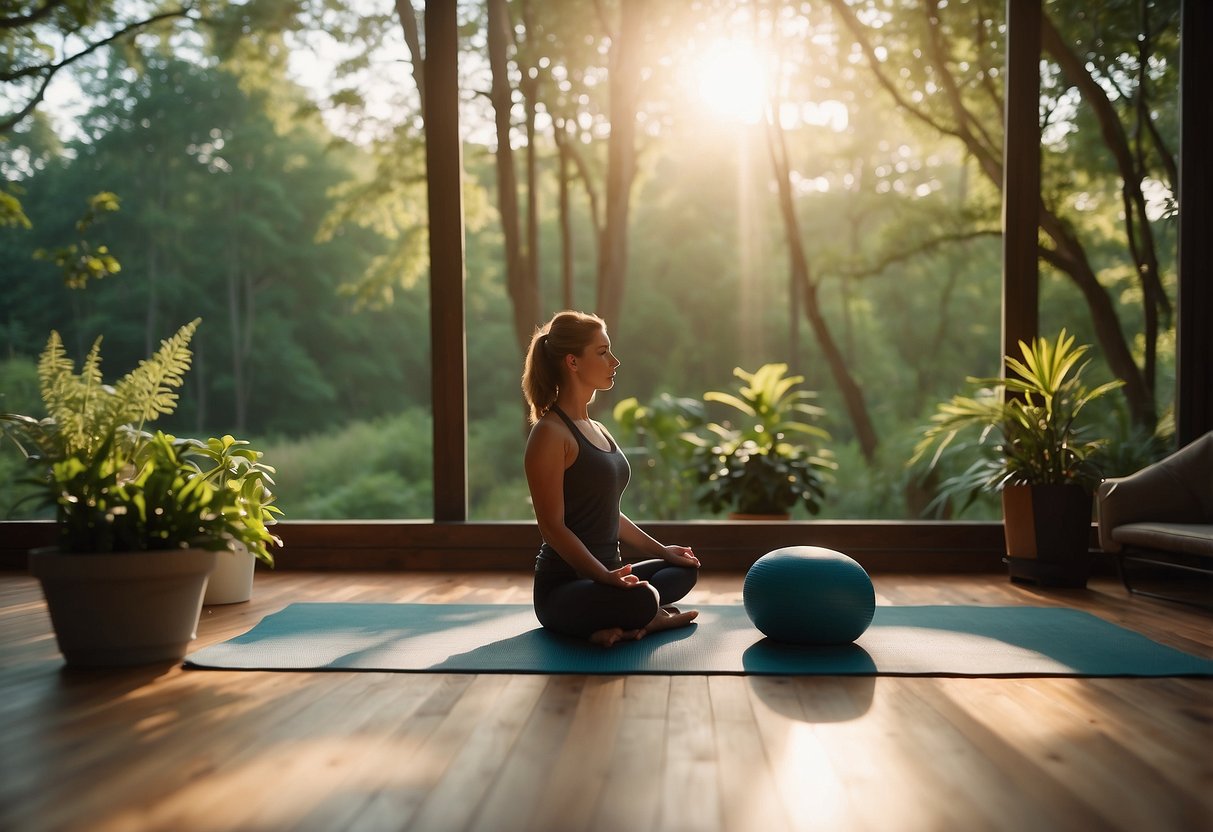
4) Meditation

Meditation involves focusing the mind and eliminating distractions. It can be done in several forms such as mindfulness, guided meditation, or transcendental meditation. Regular practice can help increase self-awareness and promote emotional health.
Mindfulness meditation emphasizes being present in the moment. Practitioners focus on breathing patterns, bodily sensations, or a specific thought, allowing distractions to pass without reacting to them.
Guided meditation involves listening to a guide or instructor who leads the practitioner through the process. This can include visualizing peaceful scenes, focusing on words or phrases, or following specific instructions to relax the body and mind.
Transcendental meditation focuses on repeating a mantra. This type helps the practitioner reach a state of restful alertness. It’s typically practiced twice a day for about 20 minutes.
Meditation can reduce stress by lowering cortisol levels and promoting a sense of calm. Practicing regularly helps individuals manage anxiety and improve concentration. Consistency is key, and even a few minutes a day can be beneficial.
Some people find it helpful to use apps or join meditation groups for support and guidance. Creating a quiet and comfortable space can enhance the experience.
Those new to meditation might find it challenging at first. It’s normal to have wandering thoughts. Gently bringing the focus back to the present moment is an essential part of the practice.
Breathing techniques often accompany meditation. Deep breathing helps relax the body and mind, making it easier to enter a meditative state.
5) Yoga

Yoga offers a combination of physical postures, breathing exercises, and meditation practices. It helps in reducing stress, enhancing flexibility, and improving overall well-being.
Regular yoga sessions can lead to lower levels of cortisol, the primary stress hormone. Practicing yoga consistently also aids in better sleep quality and increased mental clarity.
There are various styles of yoga, such as Hatha, Vinyasa, and Yin, each offering unique benefits. Hatha yoga focuses on basic postures, Vinyasa involves fluid movements, and Yin targets deep tissues.
Incorporating yoga into daily routines can create a sense of balance and calm. Many people find that even short yoga sessions can have a significant impact on their stress levels and overall mood.
Yoga can be practiced individually at home or in group classes, providing flexible options for different lifestyles. The practice encourages mindfulness, allowing individuals to connect with their breath and body.



